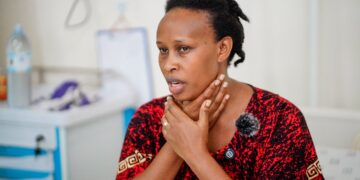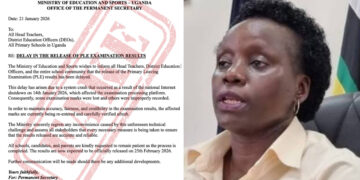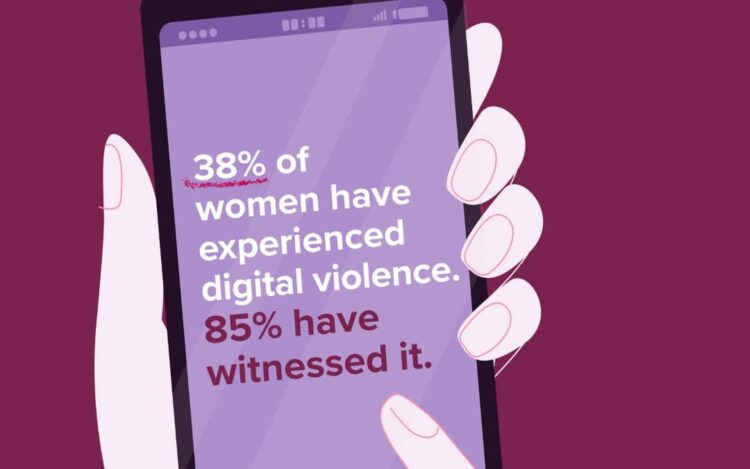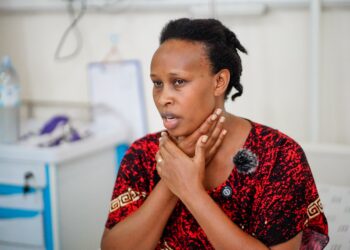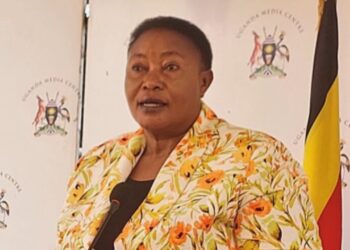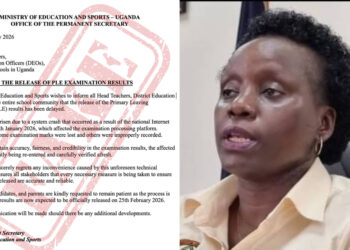KAMPALA
More than 44 percent of Ugandan women between the ages of 15 and 49 have experienced physical violence, and 17 percent have endured sexual violence, according to available data on gender based violence in the country.
The latest figures from the Uganda Demographic and Health Survey 2022 and the 2024 Police Crime Report underline the scale of the crisis at a moment when officials say cases of online abuse against women are also rising sharply.
Peace Regis Mutuuzo, the Minister of State for Gender and Cultural Affairs, says the data reflects “a persistent and deeply rooted problem” that demands coordinated national action. She made the remarks while launching the annual 16 Days of Activism Against Gender-Based Violence campaign at Uganda Media Centre on Monday.
Opening in Kasese District, Southwest Uganda in the Rwenzori region, this year’s campaign under the worldwide theme “Unite to End Digital Violence Against Women and Girls”, highlights growing concerns about harassment, cyberbullying and online exploitation. The campaign is marked by more than 180 countries and this year marks the 34th anniversary of the global movement.
Globally, 38% of women have experienced digital abuse, 85% have witnessed it, and over 90% of deepfakes target women and girls. The common forms of abuses include cyber talking, gender disinformation and harassment and AI-driven deepfakes. Uganda has registered “escalating cases of online GBV countrywide,” Minister Mutuuzo acknowledged, noting that laws and enforcement haven’t kept up. She suggested for stronger law-enforcement capacity and new technology-sector accountability standards to make digital spaces safe for all.

Although national statistics show modest improvements in some areas, the numbers remain sobering. Physical violence among women declined from 56 percent in 2016 to 44 percent in 2022, and sexual violence fell from 26 percent to 17 percent in the same period. Among men, physical violence dropped from 44 percent to 34 percent.
Police data also shows a reduction in domestic violence cases from 14,681 in 2023 to 14,073 in 2024, a decrease of 4% countrywide. Additional reporting indicates that of the 14,681 domestic violence cases recorded in 2023, only 1,520 cases reached court in 2023, and 423 resulted in convictions, raising concerns about justice gaps for survivors.
But, the Ministry of Gender boasts of the government expansion of services for survivors, including establishment of 21 shelters that have collectively supported more than 46,000 people, a majority of them women. Mutuuzo says they have also increased community outreach through male action groups, para-social workers and cultural institutions, 16 of which have issued declarations against harmful norms that perpetuate violence.
She emphasized that this year’s campaign will include a national GBV symposium, a knowledge fair, radio and television discussions, and a “Stride for Change” activism walk scheduled for December 10 in Kampala, the final day of the global observance.
Furthermore, the minister urged Ugandans to participate in events nationwide, saying that eliminating gender-based violence “requires every citizen to become an advocate.” She also commended U.N. agencies, embassies and civil society groups for supporting the campaign.
“Despite the progress we’ve made,” she said, “these numbers remind us how much further we still have to go.”















